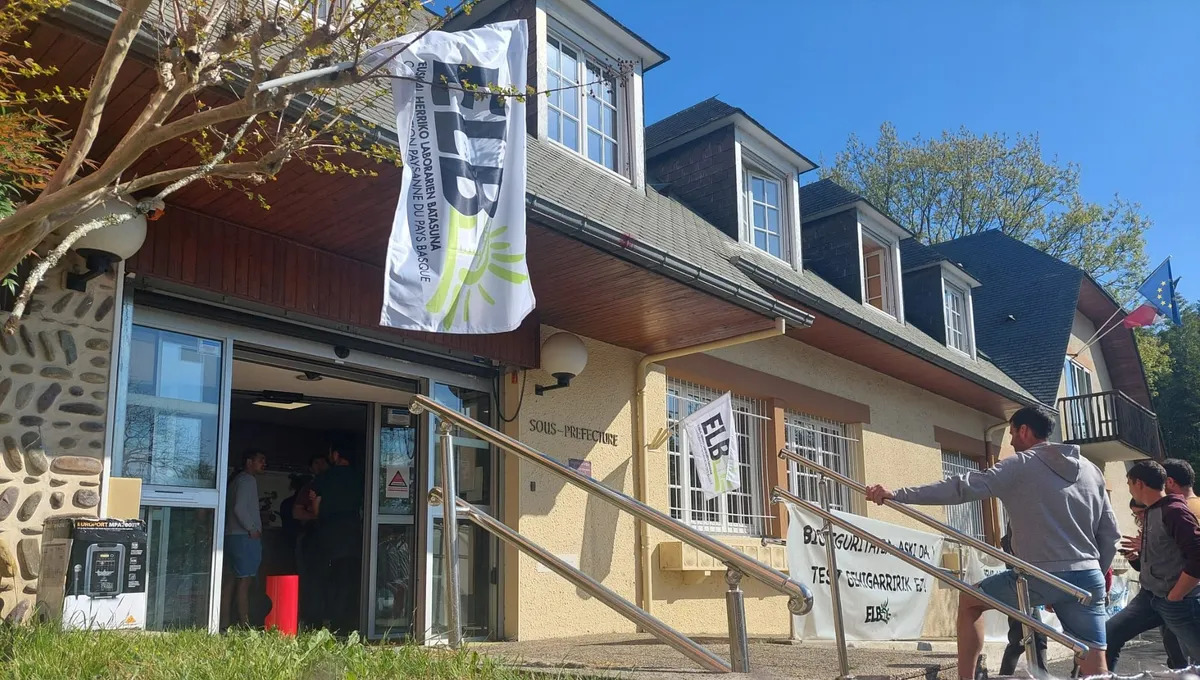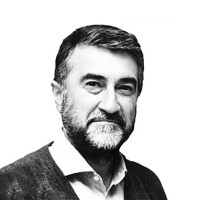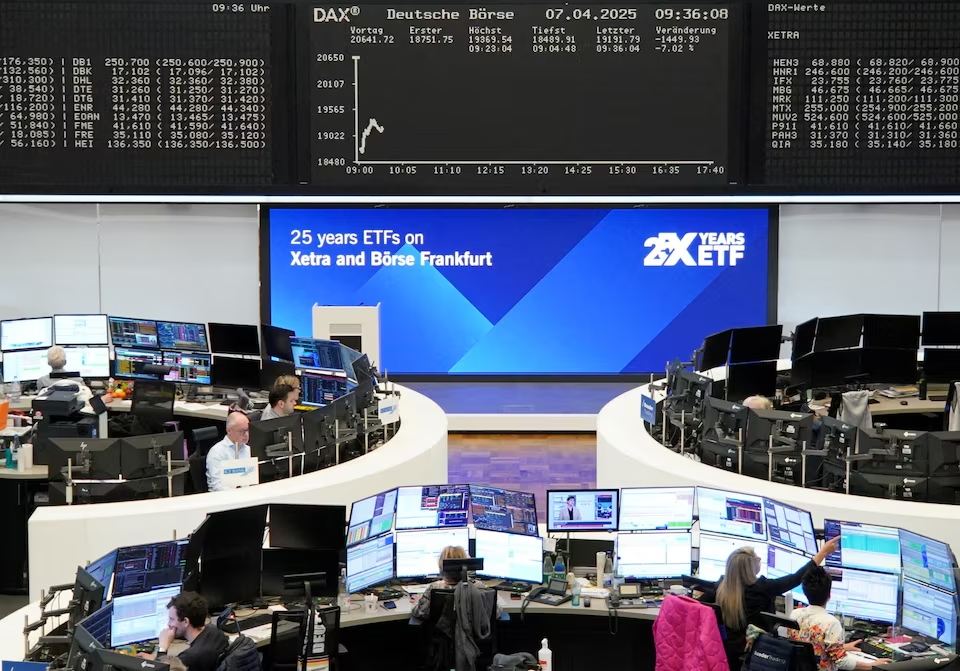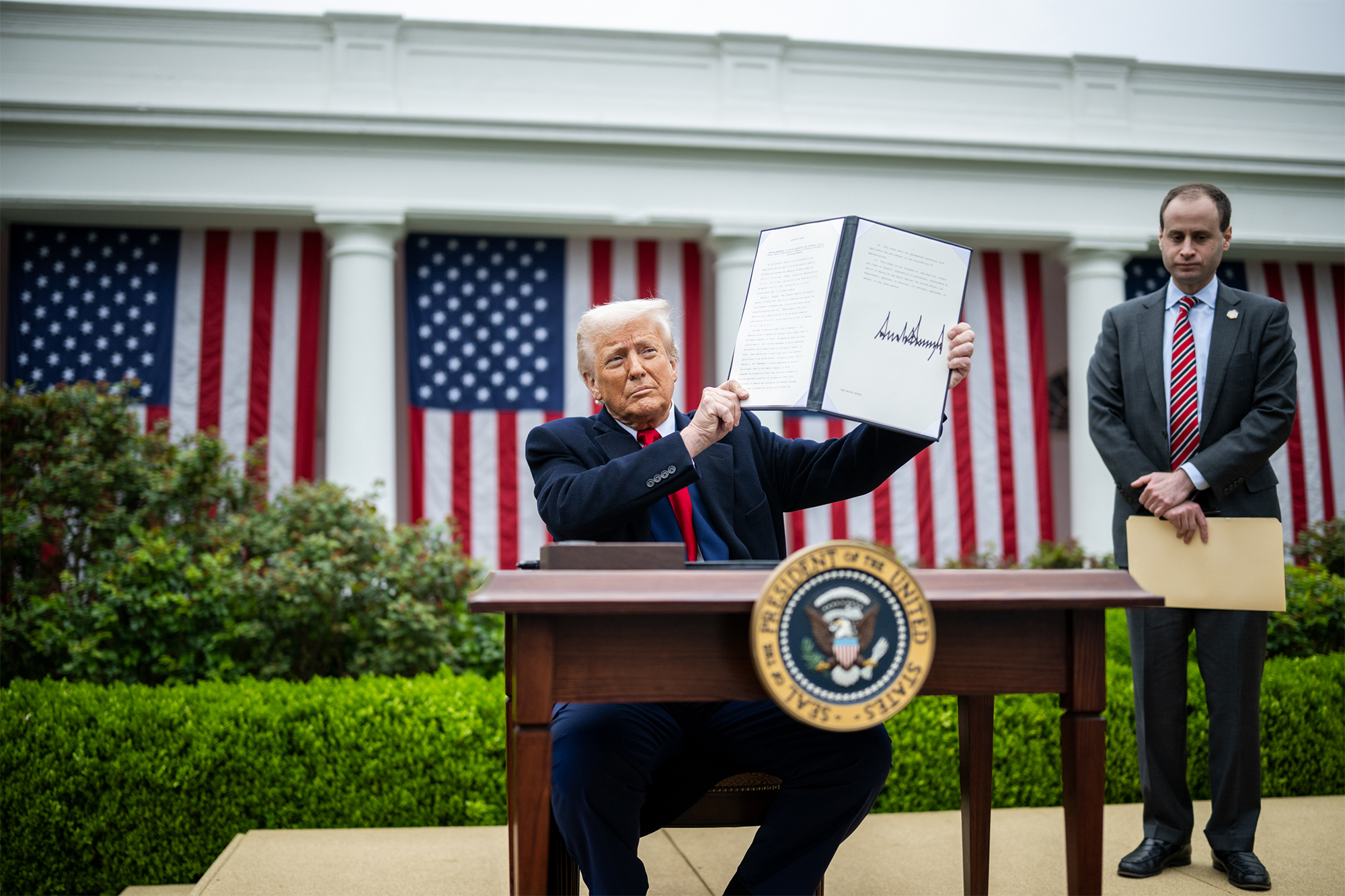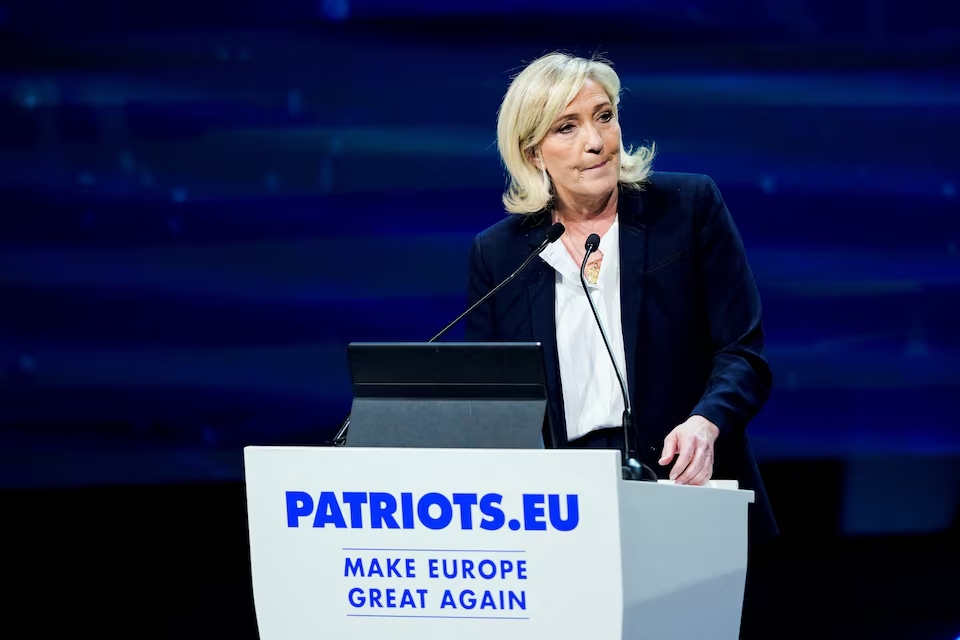'Ostpolitik', that fine echo
- The peace lines were also on the side of the policies that led to the Cold War. They did not lead to any new political restructuring that would unite East and West, but they sewed new realities between Western and Eastern Europe. The most significant of these was Ostpolitik or Eastern politics, which was promoted by the German Social Democracy. With Russian gas, a tiny echo of it has come to us until recently.
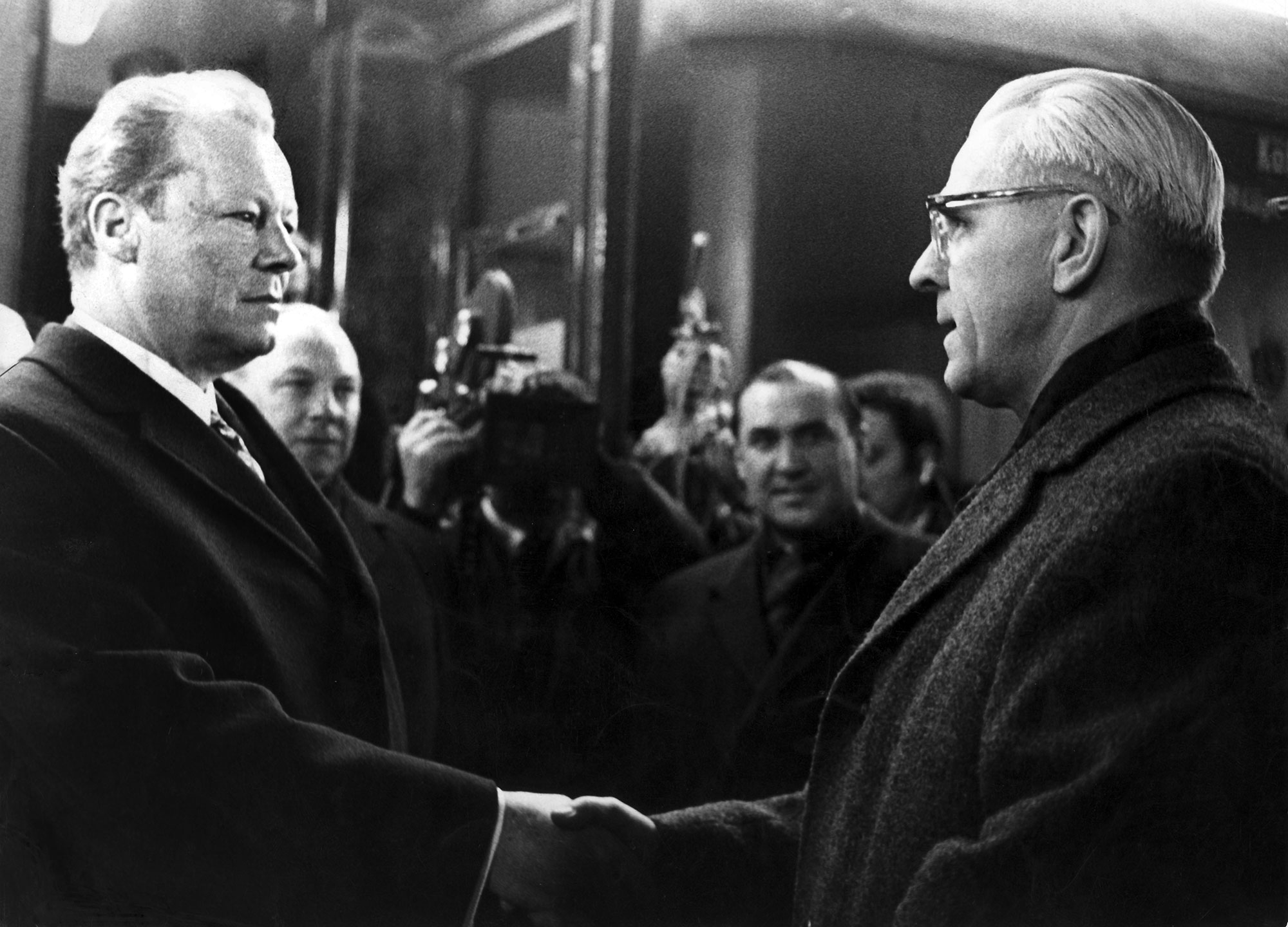
After devouring the fact that Europeans have to complete the survival kit for two weeks in their homes, they only need to hear, as a season, the need to build protection zones here and there against nuclear attack. Relax, but as the needs of the new arms race demand, everything will come. All this inevitably brings with it the echo of the Cold War and, in particular, of its end: The late 1980s and especially the early 1990s.
Mikhail Gorbachev was elected Secretary-General of the Communist Party of the Soviet Union in 1985 at the end of the Cold War. The fall of the Berlin Wall in 1989, the reunification of the two Germans in 1990 and the dissolution of the Soviet Union at the end of 1991 were completely unexpected. In all this context, the forces of Eastern and Western Europe forged a complex negotiation process to guide the unity of Germany and the enlargement of the Eastern European states.
The Soviets were divided on the question of the opening up of communist society, but at least the party sector led by Gorbachev saw clearly that in this historical period in the Soviet Union they must inevitably develop three bases: on the one hand, on the domestic level, communism must make some room for the market economy; on the other hand, it must take advantage of the unity of the two Germans to consolidate the new relationship with the Western European states and, outside the protection of the United States, to direct the construction of the “United House of Europe”.
The third pillar was related to security: After the dissolution of the Warsaw Pact, the Soviet Union had to obtain the West’s guarantee that NATO would not extend to the East. The invasion of the Soviet Union by Germany during World War II caused the death of millions of Soviets, and one of the greatest ghosts of decades of Soviet rule was the establishment of conditions to avoid such a situation. That is why the united Germany awakened old ghosts among the Soviet envoys; this time, moreover, not only for Germany, but especially for the United States.
“Not an inch to the east” In 1990 and 1991, deep negotiations took place around these three bases and in the dozens of meetings and summits held, NATO members, and especially the United States, repeatedly told Gorbachev and Soviet Foreign Minister Eduard
Xevardnadze that the military entity would not extend to the east. The expression of U.S. Secretary of State James Baker goes down in history: “Not a single inch will move to the east.” This is what was said in meetings with two Soviet leaders on 9 February 1990.
A few days earlier the Foreign Minister of West Germany, Hans-Dietrich Genscher, expressed the same intention in his speech on German unity in Bavaria: The changes in Eastern Europe and the German process of unity should not underestimate the security of the Soviets, and therefore NATO should reject their expansion to the East. In the months that followed, the leaders of France and the United Kingdom spoke along the same lines, whether it was the President of France, François Mitterrand or the Prime Minister of the United Kingdom, Margaret Thatcher. The documents of the time that the United States published in 2017 bring together the statements made at the meetings, conferences and summits, in which all of them can be seen well. (http://nsarchive.gwu.edu).
All these talks were consolidated in a pact called Two plus four to guide the unity of Germany: two Germans plus the United States, the Soviet Union, the United Kingdom and France, the main forces that guided the political reorganization of Europe after the Second World War. The treaty was signed in December 1990, but it did not state in writing that NATO would not extend eastward. For what reason? Among other reasons, because the United States did not have such a belief. Even in Germany’s documents on the subject, it is clear how Foreign Minister Genscher repeatedly points out to a large number of envoys that NATO should not extend eastward.

Gorbachev was fooled. Soon
they would begin to see statements and measures going in the opposite direction. Time has made it clear that the United States was playing a double game. To begin with, Genscher’s visit to the United States towards the end of 1990 made it clear that the United States could not commit itself to not expanding to the East in the future. In November 1991, NATO held a summit in Rome, where it was also clearly established that the demise of the Warsaw Pact did not affect its objectives and that the situation offered a new opportunity for a broader understanding of security. In the second half of 1990, the first Eastern European countries would begin to join NATO: Hungary, Poland and the Czech Republic in 1999; Lithuania, Latvia, Estonia, Bulgaria, Romania, Slovakia and Slovenia in 2005.
Much has been said about the assurances given to the Soviet Union in the context of the German Union not to extend NATO eastward. Many believe that the oral guarantees were sufficient, but it is true that they were not written in detail in any agreement. The current Russian leader, Vladimir Putin, often recalls this to underline the fact that Gorbachev was tricked. Assisted by Mary E. American historian Sarotte reveals Western positions in Not One Inch: America, Russia, and the Making of Post-Cold War Stalemate (Not an inch: America, Russia and the Stagnation of the Post-Cold War Era) in the book written in 2022, and one of its main conclusions is that, although this was said in some meetings, it was not an indicator of the spirit of the NATO era. Right-wing liberals often say that there is no book like theirs that addresses the issue.
.jpg)
Even in the US, not everyone saw this eastward expansion of NATO as appropriate. One of those voices was George F. Kennan, one of the most significant voices of the American Cold War administration. On the days when the U.S. Senate should have given the green light to this expansion in 1998, Kennan stated in an interview with the New York Times: “I think this is the beginning of a new Cold War... I think the Russians will gradually respond in the opposite direction and affect their policies. It's a tragic mistake. There was no reason for that. No one was threatening anyone.” In any case, and regardless of historical interpretations, one only has to look at the map of NATO to see how the organization has expanded to the east over the past three decades, from Finland to Turkey.
Jack Matlock, who served as U.S. ambassador to the Soviet Union from 1987 to 1991, also took a critical look at the expansion: “The focus of the problem should not be on whether or not NATO should be expanded, but on how the United States could ensure the independence of the countries of Central Europe and, at the same time, the creation of a security system that left the responsibility for the security of the continent in Europe.”
The Dream of a United Europe It
is said that in Russia of the last centuries there have always been two great trends: on the one hand, the one that would build a system of relations with the countries of Western Europe; on the other hand, the stream of Slavophiles, more favorable to the construction of the natural paths of the Russians. With the end of the Cold War, Mikhail Gorbachev and many other European leaders believed that it was possible to build a Europe beyond the blocs. Driven by the precarious state of the Soviet economy, Gorbachev dedicated himself to presenting the idea of a united European house throughout Europe from 1985 to 1991.
But Gorbachev was not the only leader at that time who dreamed of a different Europe. Vaclav Havel, the last president of Czechoslovakia, also made declarations in favour of a Europe without blocs, as well as the last communist leader in Poland, Wojciech Jaruzelski, or the foreign minister of East Germany, Lohtar de Miziere. On the western side, the French leader Charles De Gaulle also spoke about Europe to the Urals and showed his distance with the Americans on several occasions. Later, President François Mitterrand also spoke about the construction of a new security system in which Russia should also be present: “Europe will no longer be what we have known for half a century.” The Helsinki Agreement of the CSCE, signed in 1975, or the Charter of Paris in 1990, showed the air of this new environment in which it was cooking: “The period of separation and confrontation in Europe is over,” the latter said in its preamble.
From Ostpolitik: Extend to the
East Today, this vision of a possible new Europe is only a fine echo for those who experienced the Cold War and no echo for younger generations. In reality, the slightest reality of the new Western and Eastern Europe without the United States did not materialize, just in the wishes of so many. But it is this dream that has had several threads hanging, whether it is Gorbachev’s “United European House”, or the German Ostpolitik that was baked long before, which was put into effect by the leader of the German Social Democratic Party (SPD), Willy Brandt, in the late 1960s and early 1970s.
In essence, the Ostpolitik – which means ‘eastern politics’ in German – promoted Germany’s great expansion towards the countries of Eastern Europe. To move forward, he left behind the Hallstein Doctrine that had been in force until then. According to him, the Federal Republic of Germany was the only representative of Germany and specified that West Germany would not have any diplomatic ties with East Germany except the Soviet Union.
He was established by Willy Brant when Ostpolitik served as Prime Minister of Germany (1966-1976) and was greatly intensified by his role as Chancellor of Germany from 1969 to 1974. Ostpolitik led to the signing of numerous agreements with the Soviet Union and the rest of Eastern Europe, and in view of the internal situation in Germany, this led to the union of the two Germans in 1990. Brandt was a staunch anti-communist, but at the same time he saw this eastward expansion as inevitable, and essentially all of Germany’s successor commissioners, from Helmut Kohl to Angela Merkel, have been sympathetic to this policy. Ostpolitik began to dissolve during the latter period due to various factors, and mainly after the Russian invasion of Crimea in 2014.

The sum of the
two Germans led to the country’s enormous economic growth and the Germanic locomotive entered the head of the European Union’s economy in the 21st century. The relationship built with Russia was key in this, as for decades Germany used its cheap gas as the fuel of the economy. The Nord Stream1 and Nord Stream2 gas pipelines that have brought the two countries together have been the umbrellas of this extensive relationship. On September 23, 2022, during a sabotage, both tubes exploded. The first came into force in 2011 and the second was under construction, but was not operational.
According to the complaint of American journalist Seymour Hersh, winner of the Pulitzer Prize for Journalism, the sabotage was carried out by the U.S. Army. In a lengthy report published in September 2023, he explained the circumstances of the matter. Shortly after the sabotage, U.S. Secretary of State Antony Bynken was asked about the matter, and he replied: “This is an extraordinary opportunity to end Russia’s energy dependency, and therefore remove the energy weapon to advance Vladimir Putin’s imperial ambitions. This is very important and opens up many strategic opportunities for the coming years.”
The United States has never seen with great enthusiasm the steps taken by Germany and France to strengthen the European Union or the deep economic relations between Germany and Russia. The Russian gas has particularly warmed the German economy, but also that of other Western states. In that long article written by Hersh, it is said that Russia provided almost half of its budget for several years with the sale of gas and oil.
In essence, this strengthened the relationship between Russia and the EU countries, but in addition, if cheap gas was purchased in Putin, the EU countries would not buy liquid gas from the US, which is more expensive than Russia’s. So someone blew up the Nord Streem tubes and that's it. The US has tried to back up these sabotages of gas pipelines to Ukraine, but so far no one has given any other credible explanation by Hersh. During his first term (2017-20121), Donald Trump showed some early signs of a change in relations with Europe. In this second it seems to begin to materialize those desires little by little, although no one yet knows what the new look of the Far East at the point of knocking will be determined. It cannot be forgotten that everything that Trump is doing in Europe is an attempt to put less money in it, to put his forces before the real enemy: In front of China.
.jpg)
“Seek Russia’s Membership” This
is what American economist Jeffrey Sachs has just advised the EU authorities in the European Parliament in February. Sachs was the architect of the “shock therapy” that took place in Russia after the dissolution of the Soviet Union and since then he has been frequently in Russia and Ukraine, often working as a consultant. His long speech has been bold on various media and social networks, in which he points out that Russia and the EU have complementary economies and should encourage all kinds of cooperation before the war to build a different Europe outside the US germ.
“Don’t go to Washington as beggars,” Sachs concluded. That won't help you. Rather, it will probably encourage their cruelty. (...) Please have your own foreign policy. You must live with Russia for a long time, so negotiate with it. As far as security is concerned, you have real problems, both in Europe and in Russia, but the pretentiousness and the Russian phobia will not help you to solve them or the security of Ukraine. The U.S. embarked on this adventure [the war in Ukraine], now you are the most ardent instigators of the war, and the war has already created a million Ukrainian victims.”
Florentzia, 1886. Carlo Collodi Le avventure de Pinocchio eleberri ezagunaren egileak zera idatzi zuen pizzari buruz: “Labean txigortutako ogi orea, gainean eskura dagoen edozer gauzaz egindako saltsa duena”. Pizza hark “zikinkeria konplexu tankera” zuela... [+]
Ukrainaren ondoren Polonia?
Europar Batasunak Ukrainako gerra hauspotu du Kiev armaz hornituta, eta menia oraindik airean delarik, gerraren zikloan murgilduta dago bete-betean. Hori bai, bere diskurtsoa modulatzen ari da, eta gero eta gehiago hitz egiten du balizko su-etenaz... [+]
Today’s Venice is built on an archipelago of 118 islands. These islands are connected by 455 bridges. The city is based on mud rather than Lura. Millions of trees in the area were cut down from the 9th century onwards to build piles and cement the city. Years have passed and... [+]
The causes of the initial war in Ukraine are not only those that were explained to us, because there are other reasons. Russia said it had to take a step in the defense of Ukrainian Russian speakers, while the Ukrainian government had to confront the Russian army in order to... [+]
Londres, 1944. Dorothy izeneko emakume bati argazkiak atera zizkioten Waterloo zubian soldatze lanak egiten ari zela. Dorothyri buruz izena beste daturik ez daukagu, baina duela hamar urte arte hori ere ez genekien. Argazki sorta 2015ean topatu zuen Christine Wall... [+]
Europako Batzordeak aurkeztu duen plana ustezko gerra edo hondamendi baten aurrean “bizirauteko” kit batetik harago doa: hogeita hamar neurri proposatu ditu eskoletan, enpresetan eta herritarren artean militarismoa eta beldurra sustatuko dutenak.












